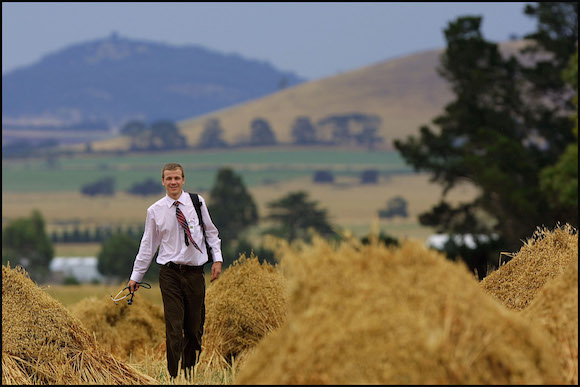
We all care about health services, and few of us don’t have a view on how they might be improved. Because health issues are of such intimate concern to every voter, they inevitably loom large in election campaigns.
Concerns around waiting times, integrated care, public hospital performance and the increasing costs of health care preoccupy much of the discussion. But while urban Australians have high expectations of a responsive healthcare system, those living in country towns and more remote areas are well used to travelling distances to their health service, are keenly aware of the workforce issues in staffing rural hospitals and clinics, and utilise health services less frequently. Concerns around access to rural health services sit on the margins of the broader health debate, yet the challenges are great.
There are pressing issues in rural health in Victoria. In some regions, workforce shortages restrict the range of services able to be offered. Managers spend long hours desperately trying to recruit new health professionals to serve their communities, and struggling to retain the ones they have.
Overall, the health needs of rural Victorians may well be greater and sometimes more complex than their urban counterparts, and yet there are fewer practitioners and specialist services to meet this need.
There are worrying shortages of doctors - both general practitioners and specialists - in rural and regional Victoria. In addition nurses, physiotherapists, speech therapists, dieticians, occupational therapists, mental health professionals and others are also scarce on the ground. Those who are working in rural areas are trying to serve small populations scattered over greater distances with less access to large hospitals and other critical resources. And as difficult as these issues are in rural Victoria, workforce shortages are even more extreme in more remote areas of Australia.
Coupled to workforce shortages in rural areas are the challenges of providing quality services to a smaller and dispersed population. For these reasons, urban models of health services do not suit small rural communities.
The most sustainable rural health services tend to be those that have evolved in communities that have recognized and responded to their own particular needs. The idea of one-size-fits-all does not work for health services. Giving service managers the flexibility to enable rural health services to be more attuned and responsive to niche local needs is critical.
Research has also found that rural health services which provide quality primary health care have improved health outcomes and are more likely to have a sustainable model that is economically efficient. Allowing rural communities and health services to develop a quality primary health care model is key to better rural health outcomes. The flexibility of policy and funding, as well as trust in local managers and boards, is essential to these improved outcomes.
In addition to the needs of health services, rural health consumers often have particular health needs. While rural consumers are diverse, their average age is becoming older, and so they increasingly require more emphasis on aged care.
On average, rural residents also have lower incomes and levels of formal education than many urban populations, and these are key determinants of health.
There are also pockets of the Victorian landscape where culturally appropriate health services are needed. Regions with an Aboriginal population require services that will meet the needs of the poorest and sickest Australians.
Overall, the health needs of rural Victorians may well be greater and sometimes more complex than their urban counterparts, and yet there are fewer practitioners and specialist services to meet this need.
So the picture for rural Victoria is that a thinly-stretched cohort of health professionals are providing health care to potentially sicker people by adapting local health services to local need. Some rural communities are managing to do this very well. Many rural health services have developed innovative models and recruited people passionate about providing quality health care.
But given the daily challenges of providing accessible health care to those with complex health, with the tyranny of distance adding another dimension to that complexity, there’s no escaping the urgent need for need for more resources.
Any effort to improve rural Victorians’ access to health services, and for health services to have flexibility to develop an appropriate local model of care as key strategies in improving rural health locally, requires investment. More resources will allow rural health services to better address the needs of their particular region, be it Aboriginal health, aged care or social disadvantage.
While currently individuals and health services do their best, greater resources and rural-friendly policies are required for further change.
Lisa Bourke is Director, University Department of Rural Health & Associate Professor of Social Science
Julian Wright is Director of Medical Student Education and Chair, Rural Health Academic Centre, Faculty of Medicine, Dentistry and Health Science





